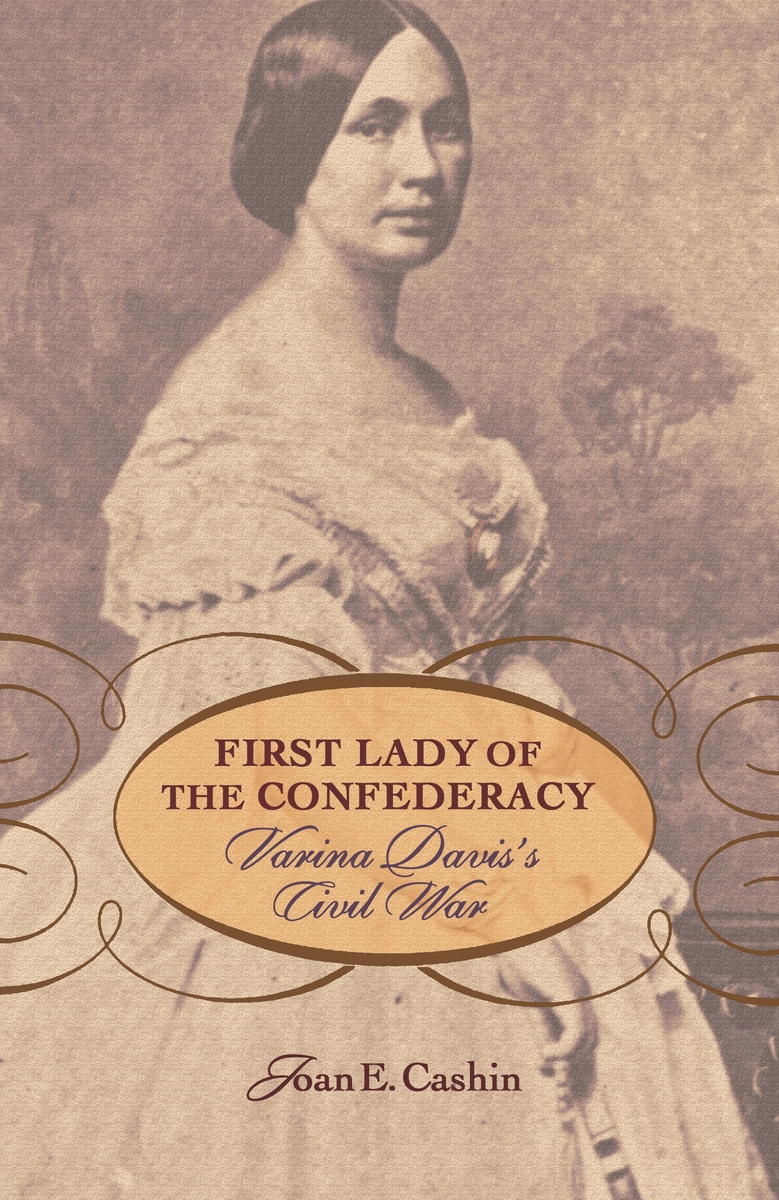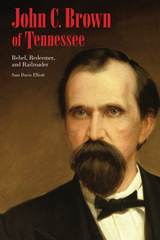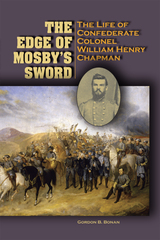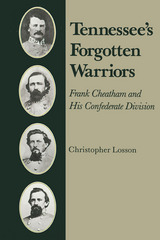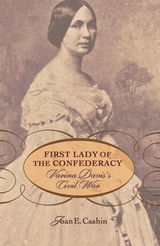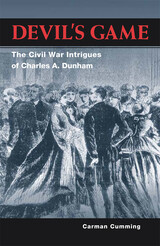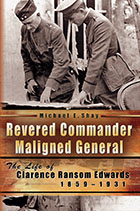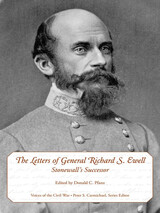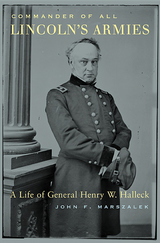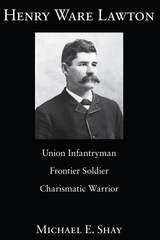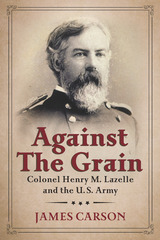This fascinating biography is the first full life of Varina Howell, the wife of Jefferson Davis. It is also the first detailed account of their turbulent marriage--between an adoring woman who could not always agree with her husband's ideas, and a stiff, much older man who cared nothing for his wife's opinions but demanded her total obedience. Joan Cashin has done an extraordinary amount of research--much of it in manuscripts and diaries hitherto unused by historians--and she writes with sensitivity, but without sentimentality. This is a major biography, essential for an understanding of the Confederacy and important for the history of women.
-- David Herbert Donald, author of Lincoln
Cashin has done justice to this compelling figure. A respected and prolific scholar of southern women's history, Cashin spent over fourteen years researching Varina Davis, painstakingly examining print sources and combing the many archives that hold relevant manuscript material. This extraordinary effort and Cashin's skill as a historian and writer are apparent on every page of this thorough, objective, and engaging book. Cashin has been careful not to impose twenty-first-century feminist values on Varina Davis, instead establishing the historical context of social, political, and gender relations and letting the documentary evidence fill in the details of Davis's life. The result is a subtle examination of an actual person, warts and all.
-- Elizabeth Bramm Dunn North Carolina Historical Review
Joan Cashin's superb new reading of the First Lady of the Confederacy offers a vivid yet balanced account of Varina Howell Davis. This is biography at its best: deep research, new material, a perceptive author, and an engrossing subject. In Cashin's hands Varina's story reaches beyond the First Lady's unique circumstances as wife, mother and widow to tell us about the old and new South. Both specialists and the general public will enjoy this exceptional portrait.
-- Jean Baker, Professor of History, Goucher College
Fascinating in her own right, Varina Davis was in some ways a 20th century woman out of her time. Her force of personality, dedication, and independent spirit, make her in many ways more interesting than her husband. In Joan Cashin's First Lady of the Confederacy: Varina Davis's Civil War we have a biography worthy of the woman at last.
-- William C. Davis, author of An Honorable Defeat: The Last Days of the Confederate Government
Cashin is always sure-handed in showing us Varina Davis as a woman who kept an inner toughness while giving in to inflexible demands, a woman who endured a marriage that was "so many holocausts of herself." A signal scholarly achievement and a marvelous read!
-- Jane Turner Censer, Professor of History, George Mason University
Cashin is always sure-handed in showing us Varina Davis as a woman who kept an inner toughness while giving in to inflexible demands, a woman who endured a marriage that was "so many holocausts of herself." A signal scholarly achievement and a marvelous read!
-- Jane Turner Censer, Professor of History, George Mason University
Cashin has written a smashing study--the first scholarly biography of Varina Howell Davis (1826–1906), wife of Confederate president Jefferson Davis. Cashin follows Davis from her Mississippi childhood through her marriage, her years in Washington (when her husband served in the Senate), through the Civil War, concluding with her widowhood, during which Varina lived in New York City and supported herself by writing for newspapers. Davis had a deep commitment to family (and in later years an almost co-dependent attachment to her daughter) and intellectual sophistication. She was a passionate reader and a scintillating conversationalist. The letters quoted here sparkle with wit. Cashin also uncovers Davis's ambivalence about the Confederacy; a "wavering Confederate patriot," she believed the South was doomed from the start. Davis kept up correspondence with Northern friends and relatives throughout the Civil War, an act that could have landed her in jail. Cashin is a strong, clear writer and situates her complex subject in larger academic debates, for example, about gender in the 19th century, without getting bogged down in academese. All in all, this is a terrifically winning portrait of a fascinating woman. (starred review)
-- Publishers Weekly
Though Davis's life reads like a tragic novel, Cashin has taken care not to romanticize her subject...Cashin has meticulously researched her subject's long life, including her move to New York after Jefferson Davis's death in 1889 and her subsequent career as a writer.
-- Tessa L. H. Minchew Library Journal
Over the past three decades a great deal has been written about Southern women in the Civil War period, and it has left little doubt that some of them were far more restless and rebellious than their husbands and fathers would have preferred. But the case of Varina Davis takes on special meaning because she was the most prominent Southern woman of her time...Cashin's book leaves no doubt that she was in fact a considerably more interesting person than her husband, and a better one as well.
-- Jonathan Yardley Washington Post
First Lady of the Confederacy: Varina Davis's Civil War is that rare combination of a scholarly masterpiece which is also enjoyable to read. You will come away from it glad that you took the time to get to know this woman and her life.
-- Laurie Chambliss Civil War Interactive
Joan Cashin has dedicated years of research and writing to produce what will surely become the definitive work on this remarkable and misunderstood woman. Meticulous research in contemporary newspapers, government documents and correspondence places Varina Davis within the political and social framework of her world. The contents of nearly 600 letters reveal Davis' private thoughts on the hot-button issues of her time: women's rights, slavery and secession. Her belief that women should have at least equal rights within the bonds of marriage set her apart from her husband on numerous occasions...Varina Davis occupies a unique position in American history, and Cashin's masterful work leaves us imagining what this woman of talent and tenacity might have achieved in a later time.
-- Mary Hatcher Charleston Post and Courier
The history of complex Southern feelings about the subjugated blacks in their midst is as long as the history of slavery and segregation. New evidence of this is brought to light by Joan Cashin in First Lady of the Confederacy. Her title is somewhat misleading, as this biography of Jefferson Davis's wife encompasses far more than the four years of the war, but it does underscore the point that Varina Howell Davis was involved in internal as well as external struggles. She doesn't seem to have questioned slavery more than occasionally and half-heartedly, but she believed that secession was foolish and the war unwinnable for the Confederacy. She supported her husband unflinchingly, as was expected of wives in that time, but she disagreed with him frequently and apparently wasn't afraid to tell him so.
-- Jonathan Yardley Washington Post Book World
In prose as vivid and daring as that found in Varina's letters, Joan Cashin...has written a biography that reveals the many facets of Varina, which will bring her the attention she deserves, and which Varina herself would have probably admired...Since Cashin candidly reveals the many humiliations that Varina endured during the course of her marriage, First Lady of the Confederacy is sometimes painful to read. How, one wonders, can such a lively and curious woman be so loyal to this rigid, often arrogant man? But if one accepts Varina's rules one can only admire her good grace...Although I found myself disappointed by Varina, I was fascinated by each twist in her story, by the wonderful vignettes of people as disparate as Oscar Wilde and Judah Benjamin, and by the portrait of those tumultuous years.
-- Roberta Silman Boston Globe
It would be impossible to write about Varina Davis, wife of Jefferson Davis, without writing about him. These two characters make Joan E. Cashin's First Lady of the Confederacy interesting and educational reading...Varina Davis is portrayed as a troubled woman reared on the precept that men and women have different natures, with men seeing women as chattel, only a fraction higher than slaves, with many duties and few rights. On one hand, she supported her husband, but she defied a woman's role by thinking for herself. After her husband died, she went to New York to become a journalist.
-- Melba Lovelace Oklahoman
Cashin presents an engaging look at the Confederacy's first lady, who surprisingly did not believe in the Southern cause.
-- B. A. Wineman Choice
